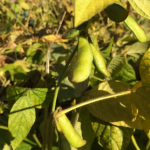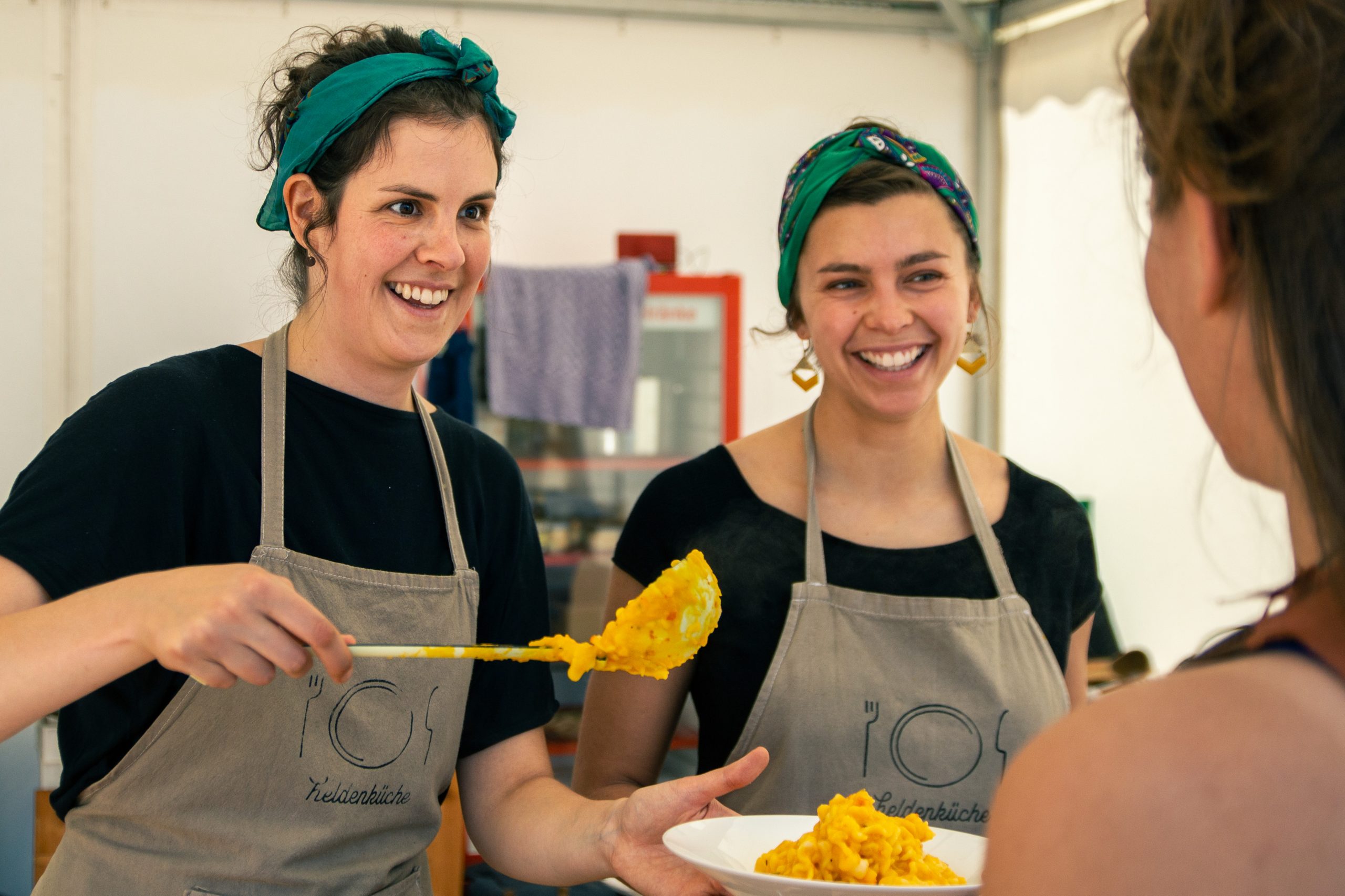Until now the Global Bean Project has been a digital network for me. Enthusiastic people —some might say nerdy :)) — work together to share knowledge through online meetings and publications to promote the wonderful and diverse family of legumes.
This time however, thanks to our yearly cooking event „Give peas a chance“ in collaboration with Slow Food Germany, the Global Bean Team was able to connect in person at Terra Madre – the international Slow Food convention in Torino.

We were very proud to be representatives of the Global Bean Project handing out postcards and information sheets and spreading the word about our network.
Slow Food and Terra Madre
Slow Food stands for good, clean and fair food and was founded in Roma in the 1980s, when the first Mcdonald’s store was supposed to open. Nowadays this community of producers, food enthusiasts, researchers and educators from all over the world gathers every two years in Torino: around 1.500 people from 140 countries attended this year. Workshops, conferences, tastings, showcases for biodiversity, many deep personal talks and country specific stands make Terra Madre a lively event. In only a few steps, one could walk from Japan to Taiwan, where people welcomed us with a big smile, stories and local food.
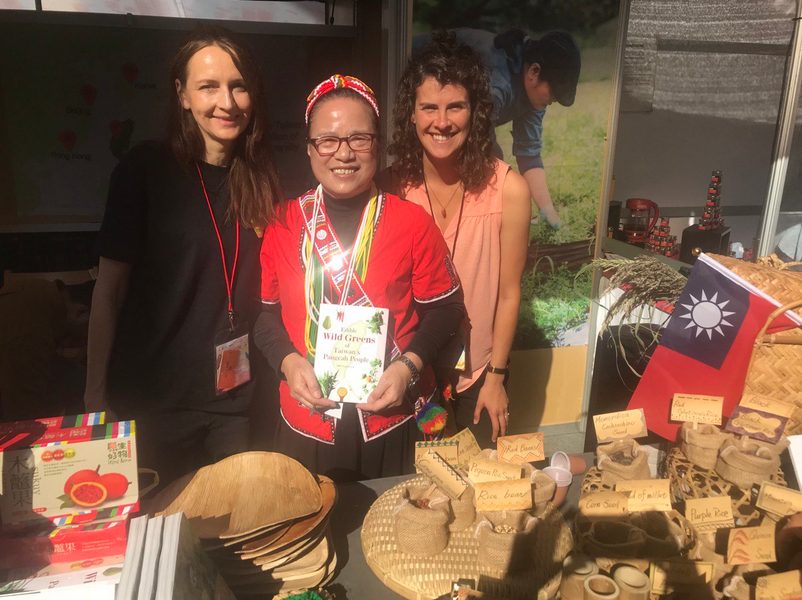

The theme of this year’s Terra Madre was „Recreaction“ and „Biodiversity“: we need to recreate and take action in order to save biodiversity. We can do that most efficiently when we organize ourselves in networks where we can share issues and support each other. In Slow Food there are different strong networks like Slow Bean, Slow Indiginous or Slow Fibre.
Meetings and Conferences
Terra Madre is a strategic moment for the different networks.
“A meeting of friends”…
…was the theme of the Slow Beans meeting. SlowBean is a network of Italian producers, cooks and activists that now wants to expand and become international. Here you can read more and find the Slow Bean Manifesto. During the event Lisa, coordinator of the Global Bean Project and Cecilia (bean beat) introduced the Global Bean Project.
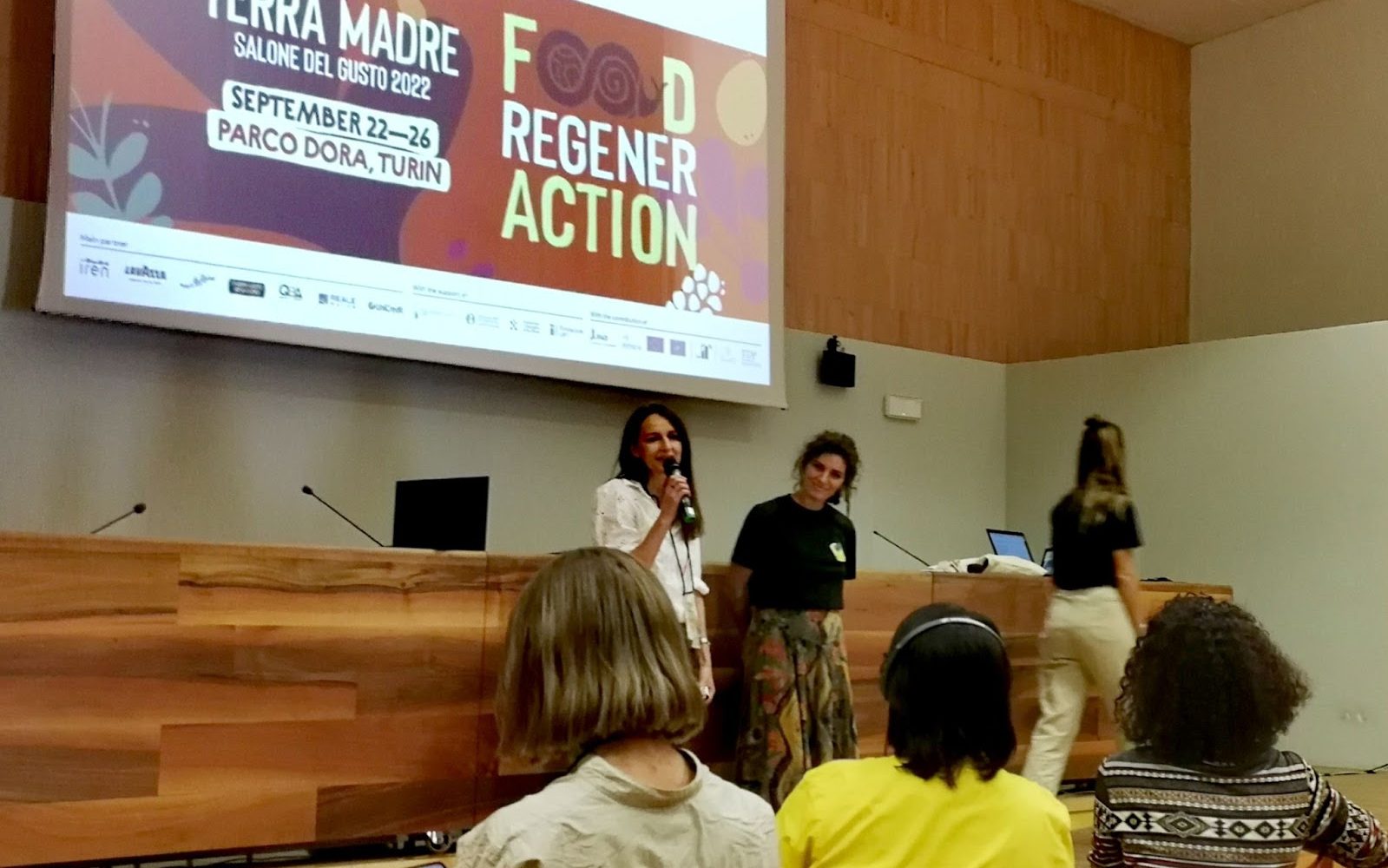
Marco, the initiator of Slow Bean, hands out little gift bags that he prepared by hand. They contain 19 varieties of Italian legumes and are just amazingly beautiful.
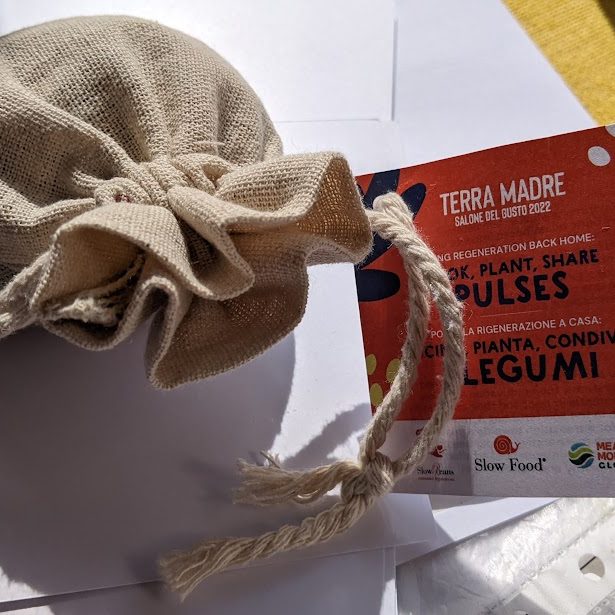
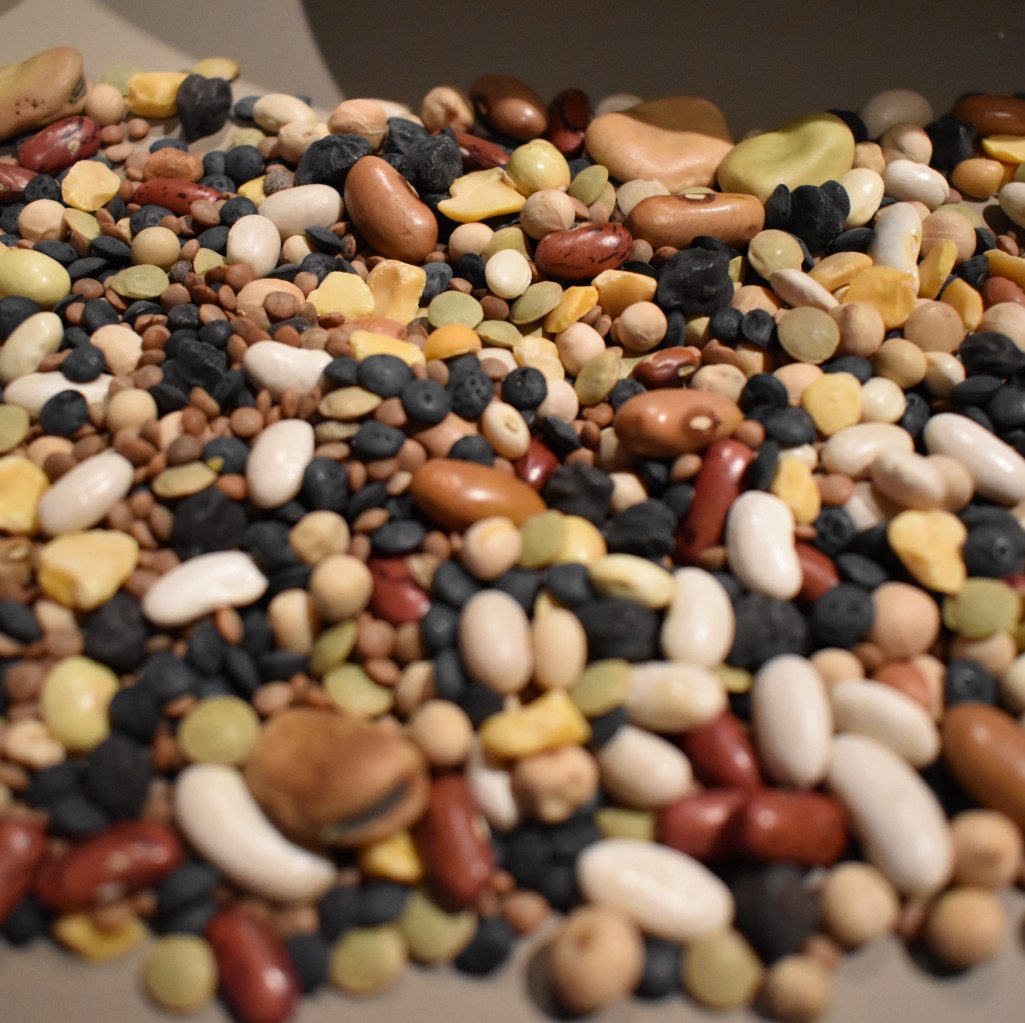
Protein Transition…
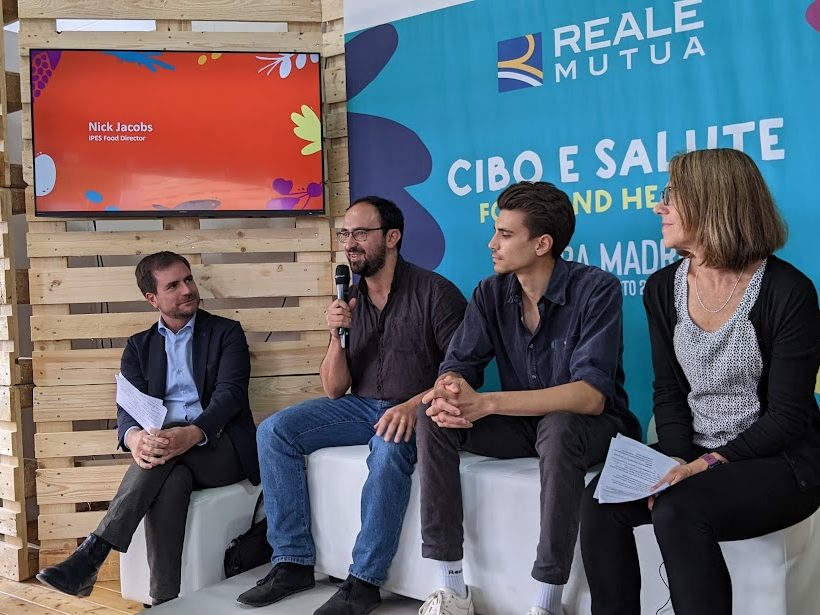
… is a new “task force” in Slow Food and we were excited to be part of the first meeting.
The panel was a nice mixture of speakers: two researchers, one politician and two practitioners. Nick Jacobs, Director of IPES Food, Julius Fiedler (@bakingherman on Instagram) and Valentina Taglietti for instance.
Everyone we heard thinks that artificial meat and processed food are not a solution for building a sustainable food system. One key element is… you guessed it, legumes.
>Learn more about the Protein Transition.
The Global Bean Cooking Event
On Saturday our big day had come. We met in the kitchen studio at Mercato Centrale to broadcast our online cooking course „Give peas a chance“.
As for myself, I was part of the moderation team along with another Global Bean partner Nicolas Carton (@lumineuses_div)!

After finishing the technical set-up in the last hour before the show, we were finally ready to go live, and showcase recipes of the two experienced chefs, Michael Recktenwald from Germany and Nihad Mameledzija from Bosnia Herzegovina. Michael cooked the Updrögt bean, a traditional – and now rare -bean from East Friesland, Northern Germany. Nihad showed us Burgers with Poljak Bean patties and buns containing 50% of chickpea flour.
During down time in the kitchen, Nicolas interviewed the two producers Melony (USA) with her heirloom Rockwell bean and Rūta Beirote(Latvia) who shared their passion of growing and collecting beans. They both had such an impressive experience… somehow shining and glorious.
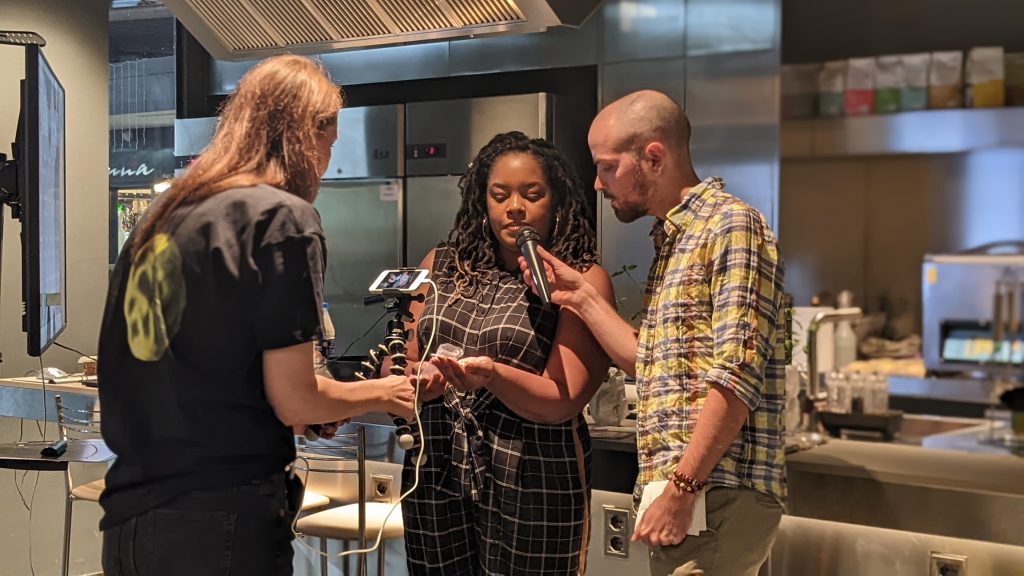
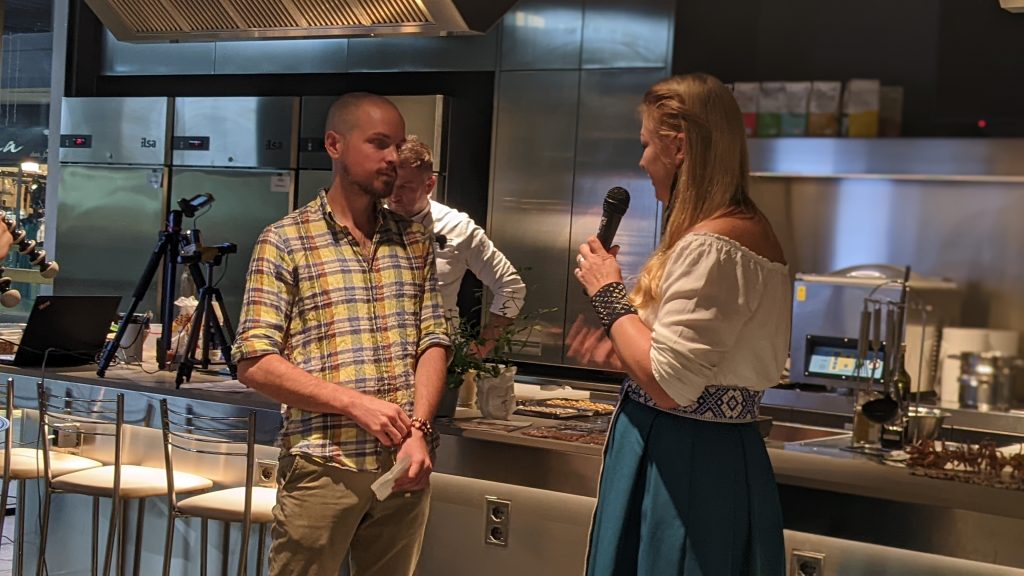
One thing I learned from Rūta: if you take a white and a black bean and put them together in the soil, you just might end up growing a new creation: black AND white-striped beans. How nice is it, to not think in black and white but in Zebra?
At the end of the session the entire team, cooks, moderators, technicians, organizers sat together and tasted the delicious food – yummy!!!
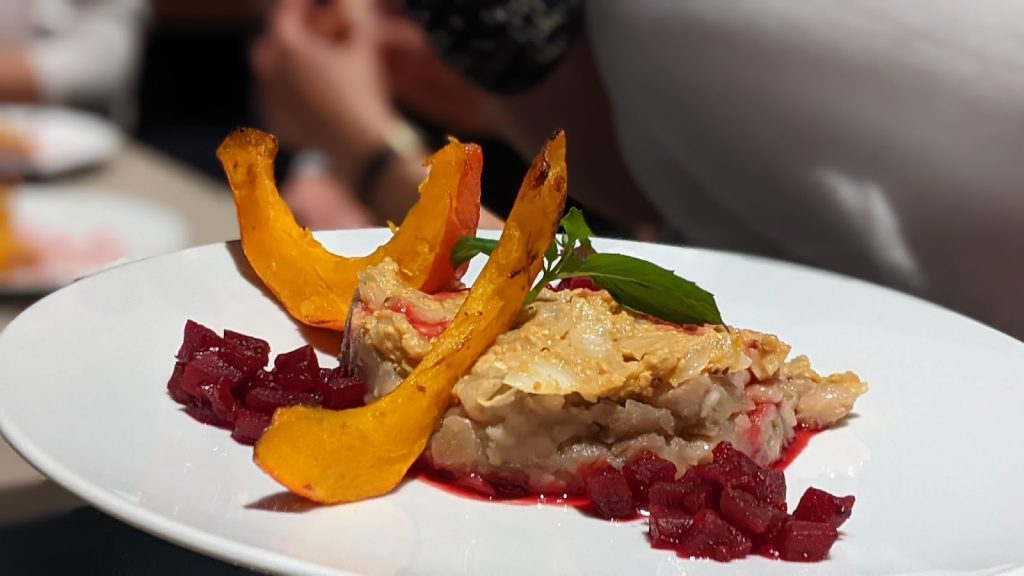
Hopefully the good mood and energy that radiated from the kitchen was able to come through the screens to participants from all over the world, along with the knowledge that was exchanged. Follow this link and see for yourself as you cook along and learn with us!
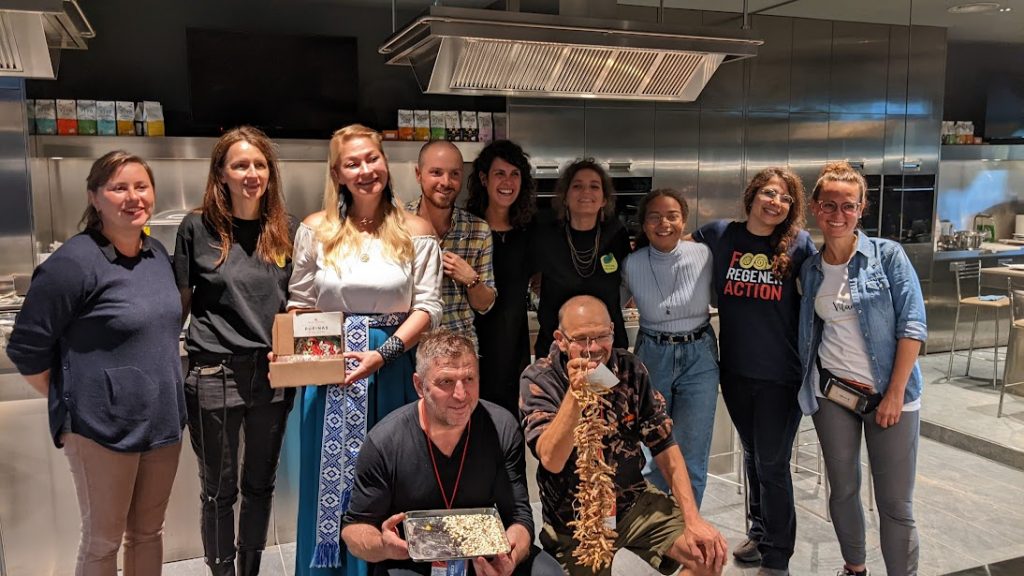
Legume exhibition
The delegates were asked to bring legumes from their country for the biodiversity installation. Each day all of us on the Global Bean team were fascinated by the beauty and diversity that was beyond what we could have imagined: it was almost impossible to take our eyes off the table.
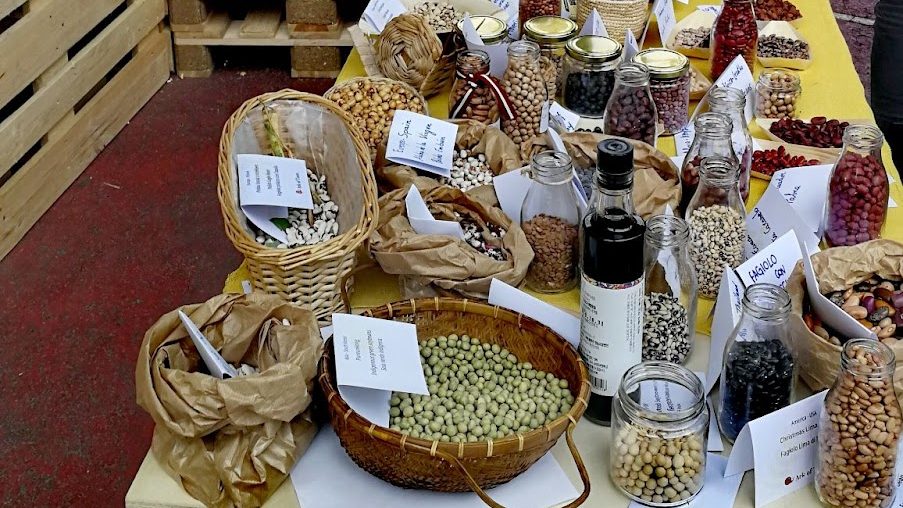
Collecting Stories
Besides being an incredible showcase of diversity, the “Bean Exhibition” was also a truly excellent spot to meet producers and legume enthusiasts.
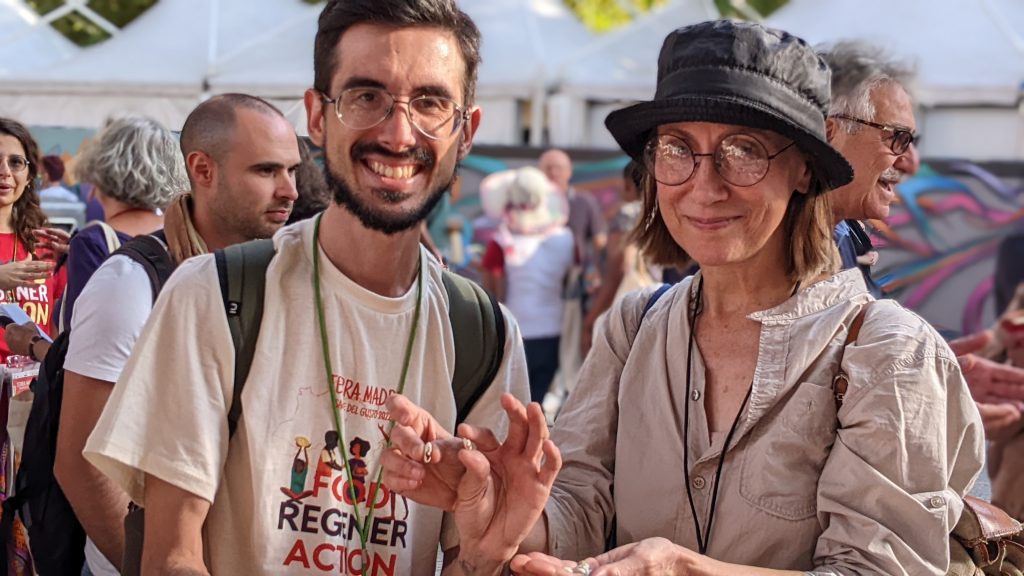
Indeed, the Global Bean team worked to continue Cecilia Antoni’s project: showing the stories, traditions, and most of all, people behind the legumes. The Updrögt beans from earlier for example? Let’s hear about them directly from Michael Recktenwald.
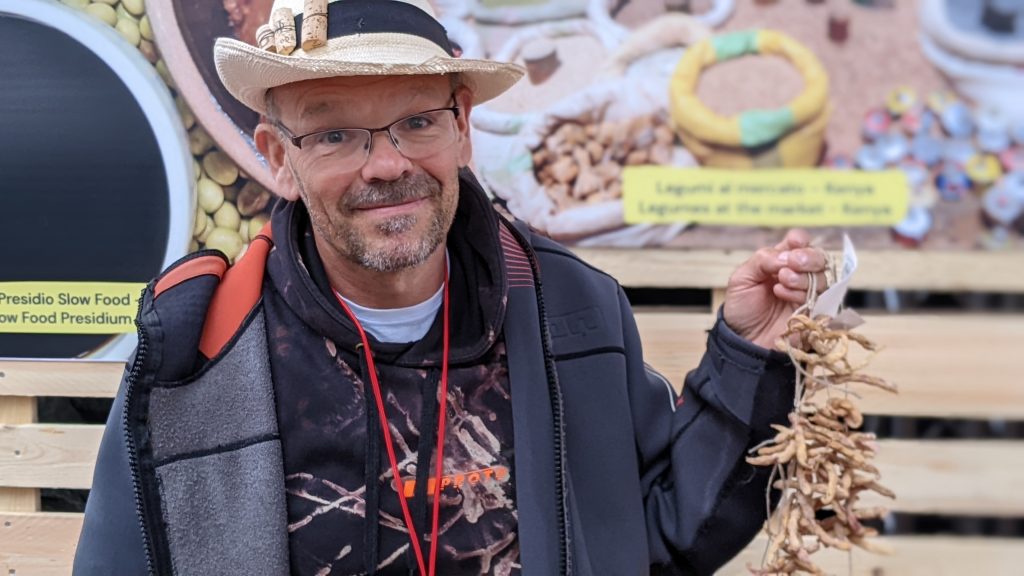
“It’s a tradition that is going to be lost, if we are not careful, because it’s a lot of work to do this method with the needle. I have a friend who is 84 years old. He is 84 and his wife is 87 and he is one of the last farmers who does it. This is why I am trying to get other cooks and other people to prepare this knowledge. I want to preserve this tradition.”
>Watch the full Seed Story here.
>Read more about the Updrögt bean story here.
Latvia, South Africa, Native American nations, Ethiopia, – as many different beans as there are origins and stories to be told.



International Seed Exchange
Time flies when you are having fun, and after these incredibly eventful and enriching few days, Terra Madre eventually came to an end. On the last day, everyone was invited to come to the exhibition tables for a seed exchange, and it was a friendly and warm treasure-sharing atmosphere:
… and a lovely way to end the event.
What you can do
At Terra Madre we felt like starting the bean movement. You can join the movement and help out the Global Bean project with many actions:
- Shout out „Beeeeeeeans“ instead of „Cheeeeeese“ when you take a group picture
- Wear legume jewelery (le jewelery) to present the beauty of pulses
- Cook as often as you can with pulses and invite people to cook and eat with you
- „Lucky Bean“: Give away your favorite bean as a present. Tell the receiving person that he/she can carry it in her wallet or bra and of course the she can PLANT it and let it GROW
- Become our partner, join our monthly meetings, follow the.global.bean on Instagram
- send us your bean pictures at
- tag us in your pictures on Instagram and use #theglobalbean.
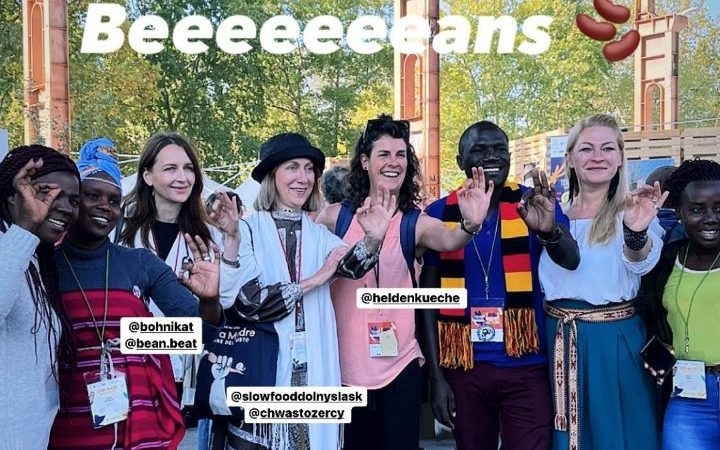
Spread the word, and let us know more fun ways to strengthen the bean movement!
Big tribute and many thanks to Louise from Slow Food Germany and Ottavia from the Slow Bean network for the professional organization, to Nicolas for the harmonious moderation, to the cooks and producers for their invaluable knowledge.
This inspiring experience make me realize just how powerful diversity is, and how traditional ways and global exchange can coexist in balance with each other.




